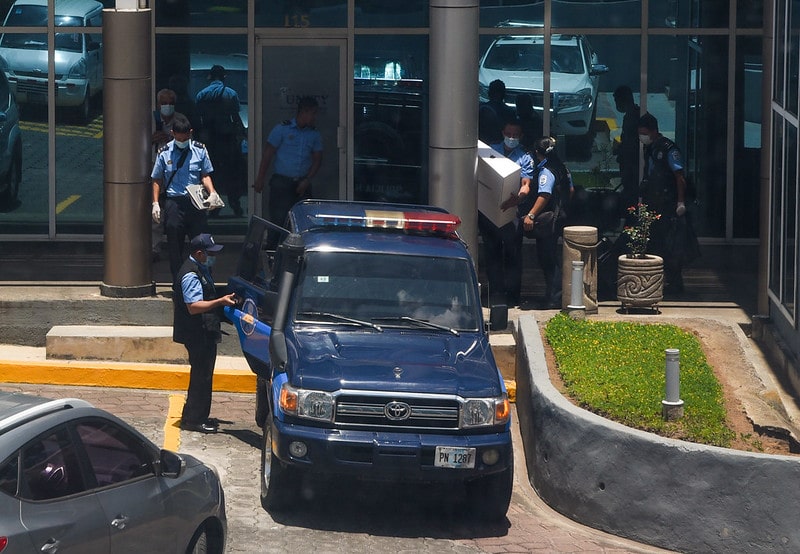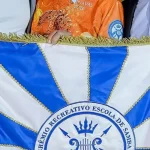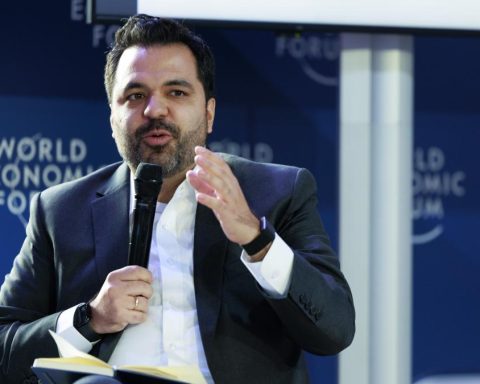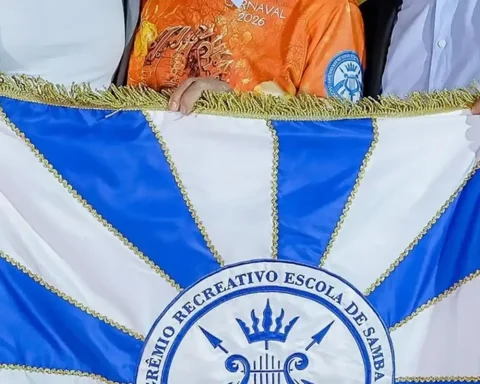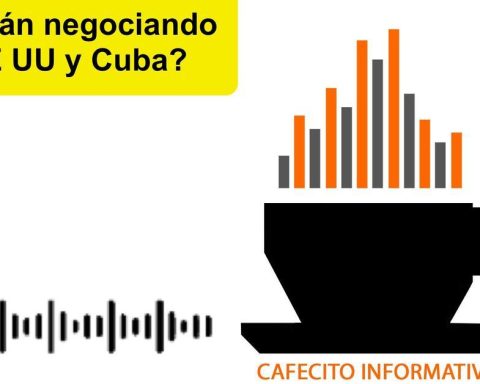One year after the second police assault on the offices of CONFIDENTIAL On May 20, 2021, which marked the beginning of the repressive escalation with which Daniel Ortega eliminated electoral competition by carrying out arbitrary arrests and spurious judicial processes, against more than 40 political and civic leaders, Nicaraguan journalism is a consolidated reference of the resistance of the independent press against power in Latin America, say experts consulted.
Pedro Vaca, special rapporteur for freedom of expression of the Inter-American Commission on Human Rights (IACHR), attached to the Organization of American States (OAS), valued that the work of the independent press shows its honest commitment to the moment that the Nicaraguan society, immersed in a stormy crisis since 2018 when the regime brutally repressed the protests of opponents who demanded his resignation, causing more than 350 deaths.
“CONFIDENTIAL it is a bastion of resilience, an example of stubbornness in not falling into silence,” Vaca said by telephone from Peru.
In December 2018, within the framework of the state repression against citizens that began in April of that year, the regime forcibly occupied the newsroom of the media outlet and forced its director Carlos Fernando Chamorro Barrios into his first exile to avoid illegal detention. , until in February 2021 he illegally confiscated the newsroom and handed it over to the Ministry of Health to inaugurate a “maternity home” for the alleged care of pregnant women.
“The effort to persist in journalism, to provide quality information, in times when spaces for civic participation are deliberately closed, is for me a heroic task, which not only speaks to the present of Nicaragua, but also to the future of Nicaragua. that cannot be waived: the reconstruction of the rule of law, with checks and balances where there are full guarantees for open, diverse and inclusive democratic deliberation,” Vaca said.
The OAS rapporteur said that the relationship of the Nicaraguan authorities with journalism is one of “deliberate abuse” and explained that to do so, power has used its institutional influence, the modification of norms if necessary, and force.
Luis Botello, deputy vice president of Global Impact and Strategy of the International Center For Journalists (ICFJ) assured that the persecution of the Nicaraguan press is one of the worst in the region, comparable to that carried out in Cuba. He highlighted that the country has experienced a considerable deterioration of the democratic system as of 2018.
Botello described as crucial the work carried out by the journalists, including the work of the CONFIDENTIAL. “Without the work of the independent press, perhaps we would have had more political prisoners, there would have been many more deaths in the country, without that work many of the crimes and human rights abuses would not have been documented and there would be no hope of seeing any justice day and the end of impunity”, added Botello.
The dignity of producer Leonel Gutiérrez
In May 2021, when the Police carried out the second raid, the Ortega regime arbitrarily detained producer Leonel Gutiérrez, 62, for seven hours, who “symbolized the dignity of national journalism” when he was questioned by detectives about the sources that we consult how
Chamorro Barrios denounced the new police abuse in the program CONFIDENTIAL RADIOdemanded the freedom of the producer and said that the regime with its actions of force would not be able to “confiscate the truth or journalism.”
Gutiérrez resisted the pressure and continued to carry out his professional work. In August 2021, surprisingly He died after complications from cancer.
With the taking over of the new offices of CONFIDENTIAL It also initiated the “judicialization” of independent journalism, starting with the fabrication of a case for alleged money laundering against the Violeta Barrios de Chamorro Foundation (FVBCh), which promoted freedom of expression and the training of journalists since its foundation in 1998. .
The second illegal raid against the recording studio of Esta Semana and CONFIDENCIAL, carried out by the Ortega Police, set the tone for a new escalation of repression and criminalization against independent journalism in #Nicaragua. https://t.co/o0fipAxtu7
— Confidential Nicaragua (@confidencial_ni) May 23, 2021
The judicial process of a political nature against the FVBCh meant the appointment of at least 60 communicators to the Public Ministry, who were subjected to a stigmatization campaign by the dictatorship that accused them of being press paid by the CIA, and even in some cases the prosecutors They directly threatened several reporters that they could apply the cybercrime law to punish “fake news.”
The cybercrime law was approved in 2020, along with other repressive regulations such as one to control the financing of non-governmental organizations, and also the sovereignty law to persecute those considered “traitors of the country”. In 2021, this “legal framework” served for the subsequent arrests of opponents and citizens in general during the year of the illegitimate re-election of Ortegawith which the regime instilled fear among citizens.
Guillermo Medrano, an investigator for Voces del Sur, stated that the instrumentalization of state institutions was demonstrated to comply with the whim of the “presidential binomial” in reference to Ortega and his wife and vice president Rosario Murillo.
Medrano added that in this process a perverse coupling of the Prosecutor’s Office was observed, MigrationNational Police, as well as the same judicial systemin order to try to silence the men and women of the press.
“For me it is a failed stage (this one of repression) that the government has tried to implement in order to silence the independent press and I say failed, because despite what they have done, they have not been able to silence it. Ortega is the same repressor as always,” Medrano said, referring to the ruler’s repressive past in the 1980s.
The fabricated trial against the FVBCh meant the inhibition as a pre-candidate of Christiana Chamorro Barrios, who before his arrest was leading the polls on the favorable opinions of the opposition candidates. On March 21, 2022, the former president of the Foundation was sentenced no evidence to eight years in prison, nine years to his brother Pedro Joaquin Chamorro Barriosseven years to its driver Pedro Vásquez, while financiers Marcos Fletes and Walter Gómez were sentenced to 13 years in prison.
“For me it is a fine-tuning of the different repressive activities of the 1980s, where there was prior censorship, total and partial closures of media such as La Prensa in those years, verbal attacks in public, they discredited the media, there were sieges against journalists. Today the paramilitaries do it, before the mobs did it,” said Medrano.
PCIN: 1520 attacks on freedom of the press
The 2021 report of the Nicaraguan Independent Journalists and Communicators (PCIN) group indicated other important milestones such as the arrest of the general manager of LA PRENSA, Juan Lorenzo Holmann, after the military occupation of the newspaper’s facilities, the oldest of Nicaragua with its 96 years of history.
In the document they also denounced the exile of at least 45 journalists between June and December of that same year, while they recalled that they are imprisoned: Miguel Mora (owner of 100%Noticias), the sports writer Miguel Mendoza and the political commentator Jaime Arellano.
PCIN recalled in the case of the FVBCh the persecution exercised against Carlos Fernando Chamorro Barrios, the international correspondent Mary Lilly Delgado and also to other former officials of the organization such as Lourdes Arróliga, Ana Elisa Martínez and Medrano; all with an outstanding track record in promoting public liberties.
“During 2021, serious restrictions on press freedom were committed. The PCIN Observatory registered 205 complaints, which resulted in 1,520 attacks on press freedom. Of the total complaints, 29 occurred in November in the context of the Nicaraguan general voting. The purpose of these attacks was to obstruct the journalistic exercise to prevent coverage of these two important events,” says PCIN.
